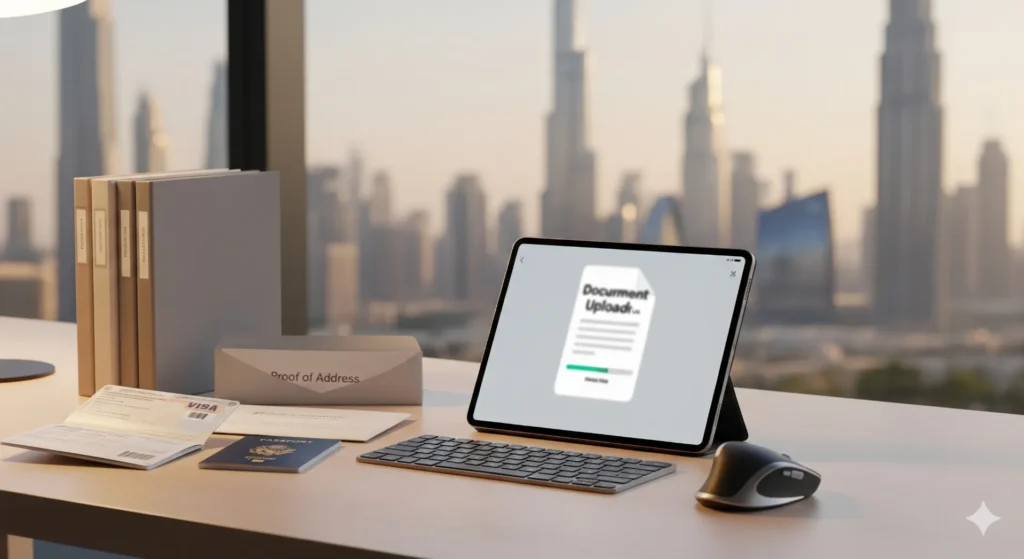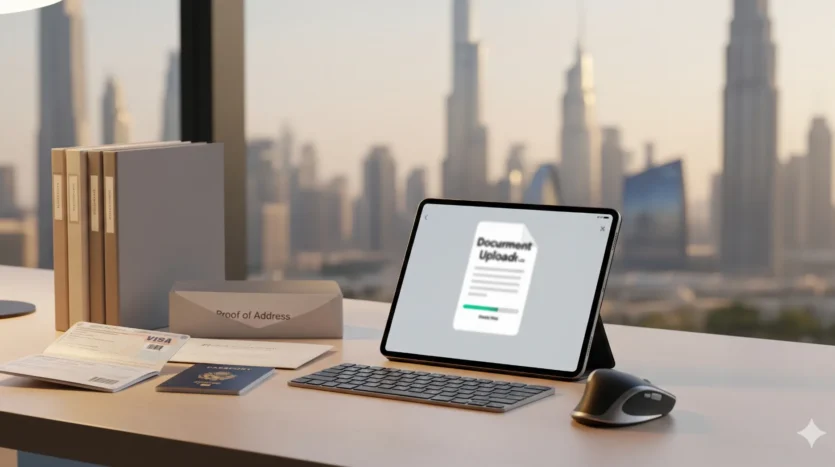Non‑Resident Mortgage Dubai 2025: Banks, Rates, Documents
A non‑resident mortgage in Dubai lets foreign buyers finance property without UAE residency, subject to Central Bank loan‑to‑value caps, a 50% debt‑burden ratio, and Dubai Land Department (DLD) registration rules. In 2025, banks typically offer fixed or EIBOR‑linked rates, with off‑plan mortgages capped at 50% LTV and a 0.25% DLD mortgage registration fee on the loan amount. Documentation and valuation standards are strict but predictable.
What is a non‑resident mortgage — and why it matters in Dubai
A non‑resident mortgage is a home loan from a UAE bank to a borrower who does not hold UAE residency. It helps international buyers access Dubai’s market, spread payments over time, and preserve liquidity.
Key regulatory guardrails set expectations and protect buyers:
- Maximum Loan‑to‑Value (LTV): For expatriates buying a first home, the Central Bank sets maximum LTVs at 80% for properties ≤ AED 5m and 70% for > AED 5m; for second/investment properties, the cap is 60%. For off‑plan across all categories, the cap is 50% LTV.
- Debt‑Burden Ratio (DBR): Total monthly debt repayments must not exceed 50% of verified income, with stress testing on rates.
- Mortgage registration fee: DLD charges 0.25% of the mortgage value plus small admin fees (knowledge/innovation), processed via Real Estate Trustee centers or e‑mortgage.
This structure makes outcomes more predictable, especially for non‑residents comparing global hubs. It also helps sellers and developers because financing timelines are standardised.
Who benefits — buyers, sellers, landlords, investors
- Foreign end‑users: Finance a primary or holiday home while keeping capital for business or investments.
- Investors: Use moderate leverage to enhance ROI when yields exceed financing costs. Recent research notes stable apartment yields around 5–7% in Dubai’s mainstream market, subject to building and location. See Knight Frank’s Dubai insights hub for current metrics: Knight Frank UAE Research and Destination Dubai 2025.
- Sellers and developers: Pre‑approved buyers move faster to transfer, reducing fall‑through risk.
- Landlords: Mortgage can be serviced by rental income when priced prudently and managed well.
The 2025 non‑resident mortgage framework (simple and skimmable)
Quick‑start checklist
- Define your budget and DBR
- Estimate your maximum monthly installment within a 50% DBR cap (including all global debt). Stress test for +2–4% rate rises as required by the Central Bank.
- Get a bank pre‑approval (3–7 business days)
- Provide ID, income proof, and bank statements (see documents list below).
- Ask for both conventional and Islamic (Ijara/Murabaha) options, plus fixed vs. EIBOR‑linked quotes.
- Shortlist eligible properties
- Banks can be selective on property type, age, and building quality. We guide you to finance‑friendly assets across our curated properties for sale.
- Bank valuation and final offer
- The bank orders a valuation (fee usually payable by buyer). The final loan size references the lower of purchase price or valuation.
- Sales agreement and NOC
- Sign the sale and purchase agreement (SPA). For completed units, obtain a developer NOC before transfer. For off‑plan, ensure Oqood and eNOC are in place.
- Transfer and mortgage registration
- Attend the DLD Real Estate Trustee center for transfer and mortgage registration. DLD charges 0.25% of loan amount for the mortgage registration plus admin fees.
- Insurance and disbursement
- Property insurance is mandatory; life coverage is typically required by lenders. Bank disburses to the seller after all conditions are met.
- After completion: rent or manage
- If leasing out, align handover with marketing, tenancy contracts, and Ejari. West Gate can optimize yield via expert property management and leasing.
Documents non‑residents usually need

- Passport copy and current visa (if any)
- Proof of address (recent utility bill or bank statement)
- Income proof: salary certificate or employment letter, last 6–12 months’ payslips
- Bank statements: 6–12 months (personal; business if self‑employed)
- Tax returns or audited accounts (self‑employed)
- Credit report from home country (if available)
- Existing loan/credit card statements
- Source of funds for down payment (and for fees)
- Property documents: SPA, Oqood/eNOC (off‑plan) or title deed and service charge statement (ready units)
Banks can request more documents depending on jurisdiction and underwriting.
Banks, rates, and products (what to expect in 2025)
- Who lends: Multiple UAE banks and finance companies lend to non‑residents. Risk appetite differs by nationality, income type, and property.
- Rate types:
- Fixed for 2–5 years, then reprice.
- Variable linked to EIBOR plus a margin.
- Islamic profit rate structures (Ijara/Murabaha) with similar “total cost of finance.”
- Pricing: Non‑resident margins can be somewhat higher than resident offers due to profile, documentation, and cross‑border risk.
- Tenor and age: Maximum tenor 25 years, with lenders setting maximum age at maturity per policy.
- Early settlement: Early repayment fees for retail loans are capped under Central Bank guidelines; for bank loans to individuals, the cap is not exceeding 1% of outstanding or AED 10,000, whichever is less. See Regulation No. 29/2011. Your mortgage offer will specify the exact fee and any exceptions.
Tip: Ask lenders for an amortization schedule, re‑pricing formula post‑fix, and lock‑in provisions. We help clients compare true cost of finance across scenarios.
Costs and fees — what to budget beyond the down payment
- DLD transfer fee: 4% of purchase price (paid on transfer).
- DLD mortgage registration: 0.25% of the loan amount + nominal admin fees (knowledge/innovation; title issuance).
- Bank processing fee: Often a small percentage of the loan or a capped amount.
- Valuation fee: Payable up‑front; varies by lender.
- Insurance: Life coverage (policy or bank‑arranged) and property insurance (mandatory).
- Trustee/administration: DLD Real Estate Trustee service fees apply; your transfer appointment will itemize these.
- Conveyancing/legal: If using a conveyancer or legal counsel.
- Service charges and utilities: Pro‑rata service charges on handover; DEWA and district cooling deposits where applicable.
We provide clients a personalized “all‑in” closing budget before they commit.
Common pitfalls in Dubai mortgages — and how to avoid them
- Over‑estimating LTV: For off‑plan, the Central Bank caps LTV at 50% regardless of buyer category; plan equity accordingly.
- DBR miscalculation: Banks include your global debts; factor this in well before you apply.
- Valuation gaps: If valuation is lower than price, you must cover the shortfall; we help select finance‑friendly assets and benchmark comps to reduce risk.
- Rate reset shock: Fixed rates reprice; model scenarios at +2–4% as banks do in their stress tests.
- Currency mismatch: If income is in a different currency, consider FX buffers.
- Wrong property type: Some assets (very old buildings, certain commercial/residential mixes) can be harder to finance; we filter for bankable options.
- Timeline slippage: Missing documents or NOC issues delay transfers; our deal desk tracks every milestone.

The West Gate process: from pre‑approval to keys (and beyond)
- Strategy call and budget map: We translate Central Bank ratios into a realistic budget and target payment.
- Lender options: Compare conventional vs. Islamic, fixed vs. variable, and total cost of finance.
- Shortlist and viewing plan: We prioritize assets that align with lender criteria and yield goals through our properties for sale in Dubai.
- Negotiation aligned to valuation: We negotiate with the valuation lens in mind to reduce funding gaps.
- Transfer orchestration: We coordinate the trustee appointment, DLD payments, and bank disbursement.
- Leasing and management: If you plan to rent, align handover with marketing through our end‑to‑end property management and the latest demand in properties for rent in Dubai.
- Off‑plan advisory: For staged payments, LTV is capped at 50%; our team helps you time bookings and tap into quality off‑plan projects in Dubai.
Mini case example
A UK‑based professional targets a AED 2.5m apartment in a prime, finance‑friendly tower. Income is diversified and well‑documented; DBR is kept under 45% to leave headroom. The bank pre‑approves a 70% LTV with a 3‑year fixed option followed by EIBOR + margin.
We secure a price aligned with valuation, avoiding a shortfall. Total closing costs (DLD, mortgage registration, bank fees, insurance) are budgeted upfront. Post‑handover, we leased the unit within 21 days, with rent covering the installment and a reserve for service charges and rate resets. Outcomes vary, but planning and asset selection often drive smoother financing and yield.
Advanced tips and 2025 market trends
- Yield vs. cost of funds: Focus on net yield after service charges, insurance, and realistic vacancy. Recent research indicates stable mainstream apartment yields around 5–7%, varying by community and building tier. See Knight Frank’s Dubai insight pages: Knight Frank Research UAE.
- Off‑plan vs. ready: Off‑plan mortgages are capped at 50% LTV; many buyers use equity during construction, then refinance on completion.
- Rate path: If global rates ease, repricing may improve. But plan for both directions; banks will stress test anyway.
- Liquidity and demand: Dubai continues to attract global capital and end‑users, with robust transaction volumes and an expanding high‑end segment, per Knight Frank’s Destination Dubai 2025.
- Speed matters: Sellers favor clean files and quick pre‑approvals. We prepare lender‑ready packs to shorten time‑to‑transfer.
Measuring success: KPIs and timelines
- Approval speed: Pre‑approval in 3–7 business days; valuation and final offer 3–7 days; transfer scheduling 1–2 weeks depending on parties.
- LTV achieved vs. target: Track how close you got to the cap (and why).
- Total cost of finance: Include bank margin, fees, insurance, and early settlement terms.
- Yield and cash coverage: Rent minus service charges vs. monthly installment.
- Days on market and days to lease: For investors, time‑to‑income is a key ROI driver.
- Occupancy and renewal rates: Portfolio health for multi‑unit investors.
Why Partner with West Gate Dubai
- Finance‑aware sourcing: We shortlist properties that typically pass bank valuation and underwriting faster.
- Deal desk execution: Dedicated coordination from pre‑approval to DLD trustee, ensuring clean, timely files.
- Investor lens: We balance yield, liquidity, and cost of funds. If you plan to lease, optimize with our end‑to‑end property management so occupancy and maintenance don’t erode returns.
- Off‑plan expertise: We map construction timelines, payment schedules, and 50% LTV caps, pairing them with quality off‑plan projects that fit your plan.
- Choice and continuity: Explore a broad inventory across our properties for sale and current properties for rent to future‑proof your portfolio.
Professional note: West Gate has many more properties than are visible at any one time. If you would like tailored options and a financing path, you can fill the form and a professional Agent will contact you via our contact page.
FAQs
- Can a non‑resident get a mortgage in Dubai?
Yes. Multiple UAE banks lend to non‑residents, subject to income verification, global DBR ≤ 50%, and property eligibility. LTV caps apply: for expatriates, up to 80% for first homes ≤ AED 5m, 70% above AED 5m, and 60% for second/investment properties; off‑plan is capped at 50% LTV. See CBUAE Mortgage Regulations. - What interest rates do non‑residents pay?
Banks offer fixed and EIBOR‑linked pricing. Non‑resident margins can be somewhat higher than for residents due to underwriting and documentation. Always compare the “all‑in” cost, including fees and insurance, and model post‑fix repricing. - What fees will I pay at transfer?
Expect a 4% DLD transfer fee on the purchase price, plus the DLD mortgage registration fee equal to 0.25% of the loan amount and small admin fees. See DLD’s official service page: Mortgage registration application. - Can I mortgage an off‑plan property as a non‑resident?
Yes, but the Central Bank caps LTV at 50% for off‑plan regardless of buyer category, with staged developer payments and bank disbursement usually on completion or milestones. - Are there penalties if I repay early?
Early settlement fees for bank loans to individuals are capped (not exceeding 1% of outstanding or AED 10,000, whichever is less), though your mortgage agreement will specify the exact terms. - Will rent cover my mortgage?
Often, yes—if you select the right unit, price it accurately, and manage it well. Recent analysis shows mainstream apartment yields around 5–7% depending on location and building. See current insights at Knight Frank Research UAE. We can market and manage to help protect net returns.
Call to Action
If you want a clear, lender‑ready path to buy with confidence this year, explore finance‑friendly listings across our properties for sale in Dubai and tap our end‑to‑end mortgage coordination. We also have a lot more properties available off market; please fill the form on our contact page and a professional Agent will contact you to tailor options and a funding plan for your goals.





